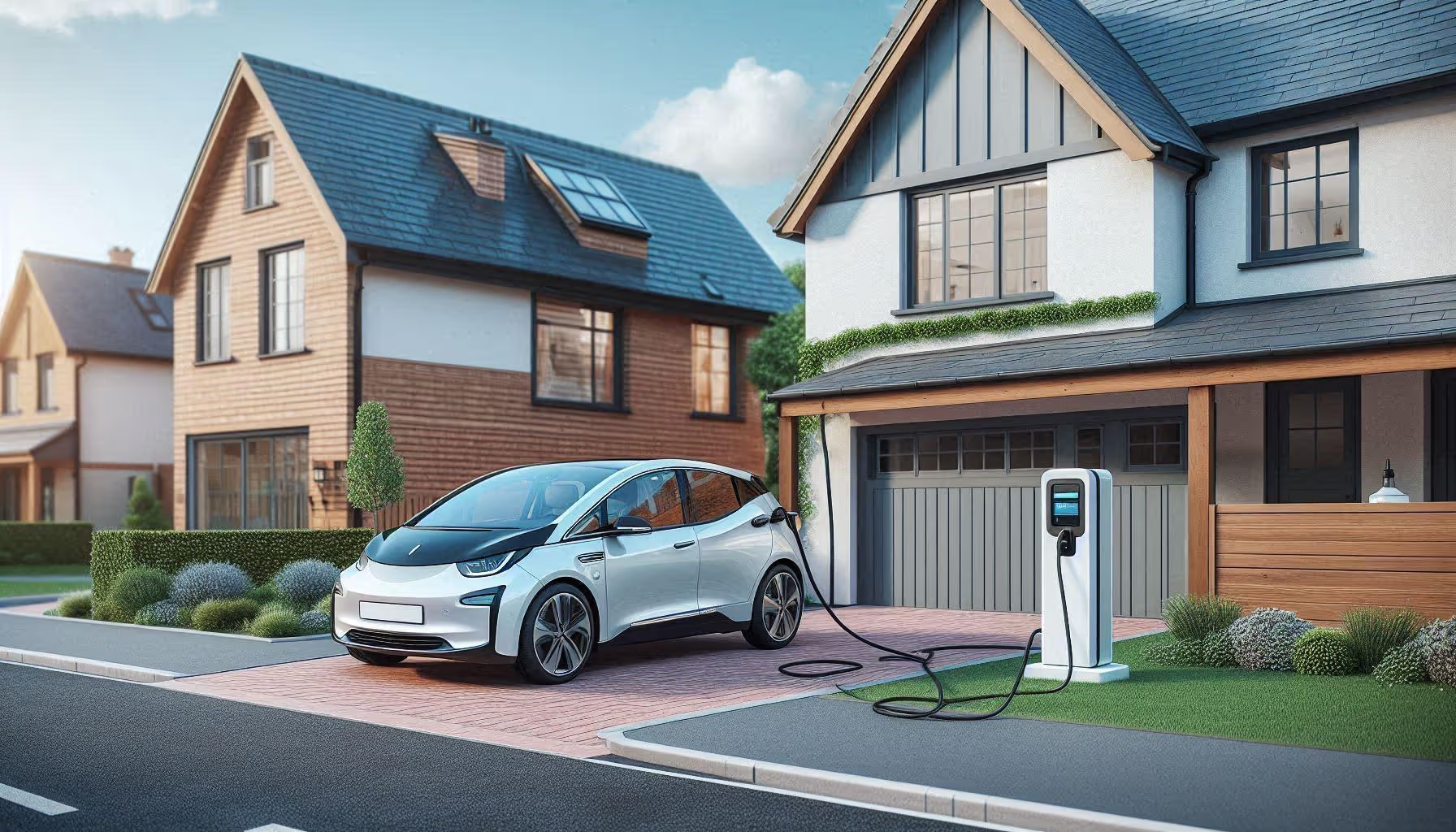
Let’s discuss the tax-related advantages of offering electric vehicles (EVs) on company car schemes and how to reduce benefit in kind liability.
The Zero Emission Vehicle (ZEV) mandate, recently enacted by the UK government, represents a significant milestone in the nation’s transition toward zero-emission transportation. Under this mandate, car and van manufacturers are required to sell a specific percentage of vehicles with zero tailpipe emissions. For the year 2024, this requirement stands at 22% for cars and 10% for vans. These percentages will progressively increase, reaching 80% for new cars and 70% for vans sold in Great Britain by 2030. By 2035, all new cars and vans to be zero-emission.
The ZEV mandate, alongside cost savings, environmental regulations, and tax incentives, is driving the accelerated adoption of electric vehicles (EVs) by businesses. With approximately 720,000 company cars currently on the road, these vehicles have become a crucial focal point in the transition to cleaner transportation.
Let’s delve into some of the key aspects related to tax incentives and financial benefits for businesses embracing EVs:
1. Tax Incentives for Company Car Schemes:
- In a company car scheme, organizations provide employees with vehicles for both personal and business use. This non-cash benefit is known as a benefit in kind (BIK).
- Employees pay income tax based on the value of the BIK, while employers contribute national insurance contributions (NICs) based on the same BIK value.
- For company cars, the BIK value considers the P11D list price, CO2 tailpipe emissions, and the employee’s income tax band.
- The tax rules heavily favor EV adoption. Currently, the employee BIK rate for EVs is fixed at 2% until April 2025, after which it will increase by 1% annually until April 2028.
- In contrast, internal combustion engine (ICE) vehicles face substantially higher BIK rates, reaching as high as 37% for some high-CO2-emission vehicles.
- For instance, an EV priced at £32,000 would incur an annual BIK of £644 (or £54 per month) for the employee. Meanwhile, a petrol or diesel vehicle costing £25,900 could result in a BIK of £7,252 per annum (or £604 per month), significantly increasing the employee’s tax liability. EVs also lead to reduced NICs for employers.
2. Potential Fuel Savings for Businesses:
- Encouraging EV adoption within company car schemes can yield substantial financial benefits, particularly related to fuel costs.
- Around 80% of electric car charging occurs at home, where drivers appreciate the convenience and cost-effectiveness.
- EV charging specialists estimate that a typical electric car can cover the average UK driver’s annual mileage (approximately 6,800 miles) for as little as £127.50 for the entire year, depending on location and electricity tariffs.
3. Lease Payments and Corporation Tax Offset:
- Limited companies can utilize monthly lease payments to offset against corporation tax.
- In the 2023/24 tax year, businesses can offset 100% of lease payments against tax for cars with CO2 emissions of 50g/km or less.
- For cars emitting 51kg/m or more, 85% of lease payments can be offset.
4. Widening EV Access through Salary Sacrifice Schemes:
- Companies can extend EV access to employees who don’t qualify for company car schemes via a car salary sacrifice scheme.
- This approach helps address Scope 3 (indirect) emissions, including those from vehicles owned and driven by employees for commuting.
- At minimal cost to the employer, salary sacrifice schemes allow employees to allocate a portion of their monthly salary (pre-tax) toward funding a vehicle’s monthly lease payments.
- Employees who don’t qualify for a company car scheme can thus access a brand-new EV without upfront payments, early termination fees, or hidden costs. This enhances EV affordability and accessibility.
- Additionally, employees benefit from reduced income tax and NICs, as the monthly payment is deducted from their salary pre-tax.
Salary Sacrifice Schemes and Their Benefits for Businesses
1. Streamlined Costs and Incentives:
- BIK rates for electric vehicles (EVs) remain consistent within salary sacrifice schemes.
- All additional costs associated with car ownership — such as insurance, maintenance, servicing, and breakdown cover — are incorporated into the vehicle’s monthly lease costs under salary sacrifice.
- Employees no longer need to separately budget for these extra expenses or unexpected costs.
2. Business Advantages:
- Car salary sacrifice provides a cost-effective approach to enhance remuneration packages, retain staff, and attract talent.
- When employees drive new, well-maintained vehicles, it reduces occupational road risks for those driving for business purposes.
3. Complementary Approaches:
- While both company car and salary sacrifice schemes promote EV adoption, they serve different purposes and cater to distinct driver groups.
- Organizations should carefully evaluate the merits of each scheme and recognize that they are not always interchangeable.
- A strategic solution may involve using both schemes in tandem, a choice many businesses are currently embracing.
To summarise, the ZEV mandate and associated incentives are accelerating the transition to cleaner transportation, benefiting both businesses and the environment.



.jpg)
.jpg)
